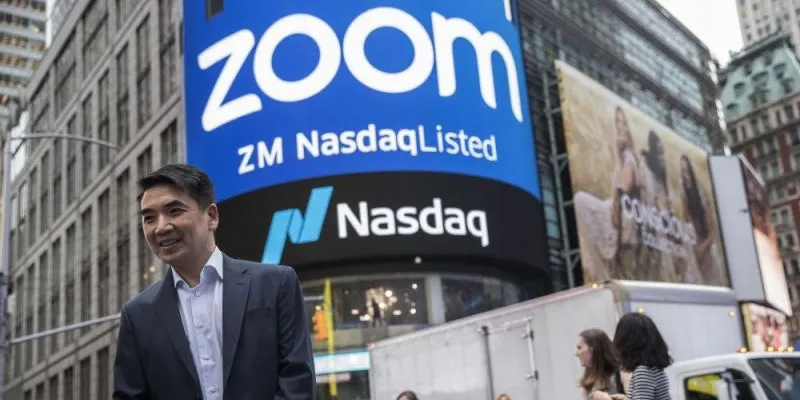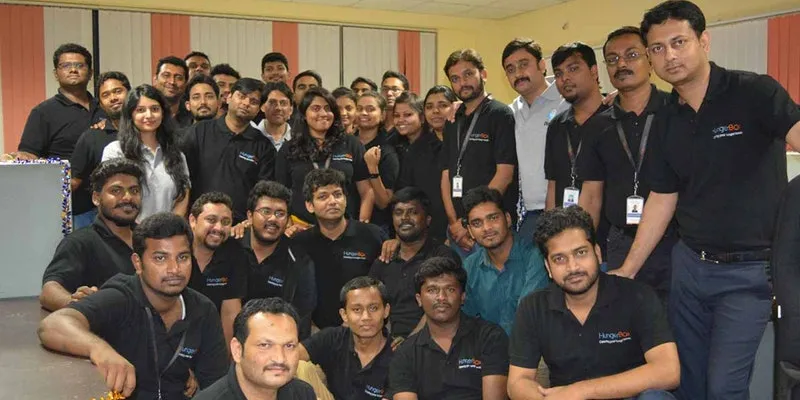The week that was – the impact of coronavirus on startups across sectors in India, and more
This week, India continues to battle the global coronavirus pandemic as PM Narendra Modi announces a 21-day countrywide lockdown. Here is how Indian startups are dealing with this crisis.
Amidst the coronavirus crisis and the resultant lockdown in India, people are finding it increasingly difficult to find essential goods such as wheat, rice, pulses, salt, sugar, etc., according to a survey released by social media firm . To add to the crisis, there are disturbing reports of delivery personnel from ‘essential services’ being beaten up by the police across the country.
The survey shows that the percentage of consumers unable to get timely deliveries of essential goods from ecommerce grocery apps such as , , and Amazon has risen to 79 percent from just 35 percent over the last two days.
During the same period, consumers failing to find essentials at retail stores rose to 32 percent from 17 percent. The startup spoke to 16,000 people across 164 districts in India for the survey.
“When this is compared to the (LocalCircles) survey conducted for March 20-22, the percentage of consumers unable to find essential goods has risen sharply,” LocalCircles Chairman and CEO Sachin Taparia said.
On Tuesday night, Prime Minister Narendra Modi – in his second televised address to the nation about the novel coronavirus – announced that the entire country is being put under strict lockdown for the next 21 days. He urged India’s 1.3 billion citizens to not step out of their homes, in a bid to contain the spread of COVID-19.

Eric Yuan.
California-based startup Zoom has probably the best business story of 2020. AdWeek touted it as the "King of the Quarantine Economy". And, rightly so. Since the global outbreak of the COVID-19, which has led to people forcibly confined in their homes, the remote-working and video conferencing platform has witnessed an unprecedented surge in valuation and users. In fact, it has clocked more monthly active users in Q1 of 2020 than it did in all of last year.
Zoom's stock has more than doubled in the last three months, and it is now more valuable than Silicon Valley upstarts and Lyft combined. The startup's billionaire-founder Eric Yuan has added $4.7 billion to his fortune this year, and his wealth now stands at $8.26 billion, according to the Bloomberg Billionaires Index.
Experts believe that Zoom's freemium pricing model was tailor-made for the coronavirus-induced remote-working universe. That, in fact, allowed the video-conferencing platform to come out of its enterprise bubble and reach the common man (or individual users).

The world has united to fight coronavirus, and businesses are doing their bit by enabling remote work and helping employees follow social distancing guidelines. As India readies for an unprecedented 21-day lockdown to prevent the spread of the coronavirus, work from home has never been more relevant.
Prime Minister Narendra Modi has said the challenge posed by the pandemic is “graver than even that posed by the world wars and we need to be on constant vigil to prevent its spread”, and has asked companies to allow employees to work from home wherever feasible.
Remote working is likely to be the new normal for a while. Numerous remote working and real-time collaboration tools, including Zoom, Amazon Chime, Zoho Meeting, and Adobe Connect, are making sure that it’s business as usual for companies across the world.
Ever since Prime Minister Narendra Modi announced a 21-day national lockdown to curb the spread of coronavirus, India has been stockpiling groceries. Every city is reporting increased sales of essentials – to the point of hoarding – and the supply chain seems to be crumbling under the weight of increasing demand.
And it looks like essentials are not available and essential services seem to be not functioning. This is despite a central ministry notification that essential services, including groceries, healthcare, food, medicine, and ecommerce, will continue to function.

Core team at SCIKEY
Every year, billions of dollars are lost due to the low productivity of unhappy employees. According to an international survey done by Ipsos, 85 percent of employees are unhappy at the workplace. And unhappy employees result in workplace unrest, stress, and societal issues, even among the younger generations.
“Mismatch of jobs with personalities, within teams, with hiring managers, and with the organisation culture or DNA is one of the biggest causes of this problem,” says Karunjit Kumar Dhir, Co-founder of .
Founded in 2017, SCIKEY is an HRtech startup that enables organisations to find quality talent in a fast and cost-effective way. With its headquarters in Pune, SCIKEY operates in three markets – India, Finland, and Malaysia. Its patented MindMatch algorithm can "read human minds" and help people make the right career choices.
SCIKEY is incubated and accelerated by SRKAY Consulting Group, the private-equity arm backed by the parent office, SRK Exports.

Team HungerBox
Indian office goers end up consuming at least two of their meals at the workplace. But with changing consumption patterns, work demands, and tech advancements, we hardly take a dabba from home, since it is more convenient to order out.
Or, there is always the office canteen to fall back on. But both these options involve sacrificing productive time to either deciding what to order or waiting in long queues at the cafeteria.
This is when former JustEat.in (acquired by ) Founder Sandipan Mitra, and its National Sales Head Uttam Kumar discovered “a tremendous whitespace opportunity for a tech-led, disruptive solution that addresses the B2B institutional food space”.
The duo co-founded , an institutional B2B2C foodtech startup in 2016. Headquartered in Bengaluru, HungerBox is an ISO 27001 certified company that connects suppliers to corporate clients, adding value to the B2B foodtech chain.
(Edited by Saheli Sen Gupta)









![[Funding roundup] Rakul Preet Singh invests in Wellbeing Nutrition; IndiaMART backs Truckhall](https://images.yourstory.com/cs/2/ba9e8080834311ec9e7e95cb06cf6856/Rakulfeaturefinal-1650281276479.png)
![[Funding alert] F2P mobile game studio LILA Games raises $10M in Series A led by Rainfall Ventures](https://images.yourstory.com/cs/2/ba9e8080834311ec9e7e95cb06cf6856/LILAfinal-1647414886475.png)
